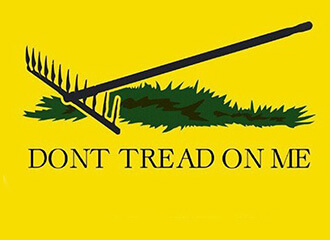На русском языке:
Мнение. Егор Лебедок о роли ОДКБ в преодолении «террористической угрозы»
На беларускай мове:
Меркаванне. Ягор Лебядок пра ролю АДКБ у пераадоленні «тэрарыстычнай пагрозы»
Columnist Yahor Lebiadok in his telegram-channel explained in which cases the country can request CSTO assistance, who from Belarus can go to Kazakhstan if necessary, and why the help of Russia and Belarus in suppressing protests is not a good idea. Here is the opinion unchanged.
Following the Agreement on the Collective Rapid Reaction Forces of the CSTO, the latter is used to localize armed conflicts and combat international terrorism. For the fight against «terrorism,» Tokayev requests assistance, deliberately under this norm of the Agreement declares: «These terrorist gangs are essentially international.» The act of external aggression taking place in Kazakhstan at this stage can not be called in any way. The classic of Soviet politics is to blame external actors for all problems.
The Collective Security Council shall decide to apply the CRRFon the basis of a formal request from one or more Parties based on consensus or with the Parties’ consent. This is also a field for games of different CSTO countries, for example, Armenia.
The preparation and conduct of the CRRF operation shall be carried out by the CRRF Commander, who shall be appointed from among the representatives of the host Party (in this case, Kazakhstan) unless this is decided any other way.
Special forces units of the internal affairs bodies of the Parties assigned to the CRRF shall be involved in the following tasks:
- the liquidation of illegal armed groups;
- counteraction to mass riots that impede the fulfillment of the tasks;
- ensuring the security of state facilities.
In the current situation, Uzbekistan’s dissenting opinion on the draft Agreement on the CSTO CRRF is quite remarkable: «At the same time, we proceed from the immutable conviction that each of the CSTO member countries can resolve its internal contradictions and confrontations on its own without involving the Armed Forces from the outside. And only in the case of external aggression and forceful intervention from the outside there will be a need to attract and apply the CRRF». Belarus has signed the Agreement as it is.
The CRRF from Belarus includes the SWAT of the Internal Troops and the 103-d Brigade of the Special Operations Forces. But in the last CRRF exercises in Tajikistan, we also participated in a combined reconnaissance detachment of cadets of the Faculty of Military Intelligence of the Military Academy and servicemen of a separate special purpose company of the Western Operational Command (ZOK). It is possible to include other units from us if needed quickly. At the same time, within the framework of the Agreement, during the preparation and conduct of operations with the participation of units of the internal affairs bodies of the Parties, it is not allowed to disseminate information on their composition, on the tactics of operations, on the characteristics of weapons, special equipment, as well as information disclosing other information prohibited for distribution by the national legislation of the sending Parties. That is, for example, the composition of the sent forces from the Armed Forces, where you can include in a closed format or resubordinate other units you may not know.
The dispatch of military personnel (including employees of the Ministry of Internal Affairs, the Investigative Committee, the Prosecutor’s Office, etc.) and civilian personnel outside Belarus for such purposes are carried out with their personal written consent decision of the President of Belarus. Conscripts are not sent, but they can sign a contract during the service. Conscription officers are also not sent. The consent of Parliament is not needed to send our CRRF contingent. In May 2021, the requirements for military personnel to participate in activities to maintain international peace and security were simplified.
I do not think that in a serious negative case, a certain number of corpses of Belarusian volunteer servicemen from Kazakhstan will change the situation in Belarus - it is not particularly sad for the people - they wanted it themselves, for Lukashenka's supporters the next heroes of the war with the West for a week, who will be forgotten when changing the agenda.
Another thing is that if in Kazakhstan our and Russians kill Kazakhs, and those, including the military and police, perceive this as external aggression (which is likely), then the situation at the international level will be complicated for the sender. When localizing the airport, it will be necessary to conduct a special operation to pull this contingent of the CRRF out of Kazakhstan (which is also fraught with the growth of the conflict). Otherwise, there will be hundreds of prisoners or prisoners of war, for whom you yourself will have to bargain. By the decision to send forces, Belarus can get involved in a war with its ally.
Updated
Late in the evening, the Collective Security Council of the CSTO, following Article 4 of the Collective Security Treaty, nevertheless decided to send to the Republic of Kazakhstan, not the Collective Rapid Reaction Forces, which would be logical for combating «terrorism,» but the Collective Peacekeeping Force (KMS). Moreover, the purpose of sending peacekeeping forces is to stabilize and normalize the situation in this country.
On the one hand, Tokayev claims international terrorism to be in Kazakhstan, for the fight against which the CRRF, in particular, was created. But they are sending a collective peacekeeping force, which, both in name, should be called upon to establish peace between the conflicting parties and in terms of tasks.
It turns out that the CSTO recognizes opponents of the Kazakh authorities as a party to the conflict and not as terrorists, as Tokayev claimed? After all, these forces will not "create conditions for negotiations" with terrorists, and even "prepared" and "international."
According to Art. 5 of the Agreement on Peacekeeping Activities of the CSTO, the actions taken by the Collective Peacekeeping Forces are carried out in a spirit of impartiality, neutrality, and openness with the express consent of the conflicting parties, and provided that they reach an agreement on a ceasefire and other military actions in the conflict zone, and ensuring the safety of the peacekeeping contingent and its right to self-defense. That is, the consent of the conflicting parties is also assumed. I wonder, who of the protesters was asked for it?
There is no difference in the direction of our peacekeeping forces from the order described in the previous post. The exercises of the CSTO peacekeeping forces from Belarus were also attended by the forces of the Special Operations Forces (the 103rd brigade, on the basis of which there is a peacekeeping company) and the Internal Troops. In accordance with the Agreement, member states will recognize The Forces personnel performing duties in the Area of Responsibility of the Forces as participants in hostilities and shall guarantee compliance with this status in accordance with their national legislation. I think many people want to go for medals and benefits in the form of a career and housing in Belarus, just as in the Russian army, there were people who wanted to go to Syria at one time, especially in the period after active hostilities.


